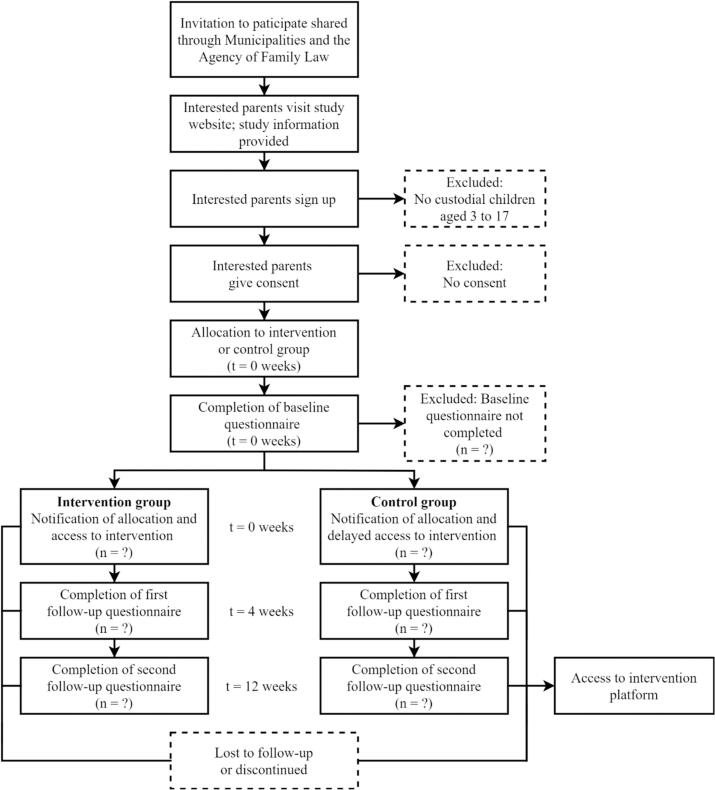The “SES NXT” digital intervention for children of relationship dissolution: Study protocol for a randomized controlled trial study
IF 4.1
2区 医学
Q1 HEALTH CARE SCIENCES & SERVICES
Internet Interventions-The Application of Information Technology in Mental and Behavioural Health
Pub Date : 2024-12-12
DOI:10.1016/j.invent.2024.100797
引用次数: 0
Abstract
Parental relationship dissolution is among the most prevalent life crises for youths and is associated with both short- and long-term intra- and interpersonal struggles. Extant support programs tend to be in-person and in a group format. However, the structure and personnel needed for these programs make them costly to implement, less accessible, and difficult to scale. Digital interventions may present a suitable alternative. The current study examines the effectiveness of an online psycho-social intervention for children who have experienced parental relationship dissolution in Denmark, using a two-arm, parallel-group, randomized controlled trial study design. Families are recruited through Danish municipalities and the Danish Agency of Family Law and randomly assigned to the intervention group or wait-list control group. Individuals are assessed at baseline, 4 weeks, and 12 weeks post-baseline; parents complete questionnaires on behalf of their children aged 3–10, while youth aged 11–17 complete the questionnaires themselves. The primary study outcomes are 1) emotional problems symptoms, as measured by the Strength and Difficulty Questionnaire (SDQ), 2) mental well-being related difficulties, represented by the SDQ-Total scale score, and 3) impact of problems on daily life, as assessed by the SDQ-Impact scale score, at 12-weeks post-baseline. The data will be analyzed using a generalized estimating equation, accounting for non-independence of data (nesting of children within a family). The present study will contribute to the extant knowledge about the effectiveness of digital interventions for youths experiencing parental relationship dissolution and contribute to a cost-effective evidence-based scalable psychological help for a population who needs it.

“SES NXT”数字干预对关系破裂儿童:随机对照试验研究的研究方案。
父母关系的破裂是年轻人最普遍的生活危机之一,与短期和长期的内部和人际关系斗争有关。现有的支持项目往往是面对面的,以小组形式进行的。然而,这些项目所需的结构和人员使其实施成本高昂,不易获得,难以扩展。数字干预可能是一种合适的替代方案。目前的研究考察了在线心理社会干预对丹麦经历父母关系破裂的儿童的有效性,采用双臂,平行组,随机对照试验研究设计。通过丹麦市政当局和丹麦家庭法机构招募家庭,并随机分配到干预组或等候名单控制组。在基线、4周和12周后对个体进行评估;家长代表3-10岁的孩子完成问卷,11-17岁的青少年自己完成问卷。主要研究结果为:1)情绪问题症状,由力量和困难问卷(SDQ)测量;2)精神健康相关困难,由SDQ-总量表评分表示;3)问题对日常生活的影响,由SDQ-影响量表评分评估,基线后12周。数据将使用广义估计方程进行分析,考虑到数据的非独立性(在一个家庭中嵌套孩子)。本研究将有助于现有的关于数字干预对经历父母关系破裂的青少年的有效性的知识,并有助于为需要它的人群提供具有成本效益的循证可扩展的心理帮助。
本文章由计算机程序翻译,如有差异,请以英文原文为准。
求助全文
约1分钟内获得全文
求助全文
来源期刊

Internet Interventions-The Application of Information Technology in Mental and Behavioural Health
Medicine-Health Informatics
CiteScore
6.50
自引率
9.30%
发文量
94
审稿时长
6 weeks
期刊介绍:
Official Journal of the European Society for Research on Internet Interventions (ESRII) and the International Society for Research on Internet Interventions (ISRII).
The aim of Internet Interventions is to publish scientific, peer-reviewed, high-impact research on Internet interventions and related areas.
Internet Interventions welcomes papers on the following subjects:
• Intervention studies targeting the promotion of mental health and featuring the Internet and/or technologies using the Internet as an underlying technology, e.g. computers, smartphone devices, tablets, sensors
• Implementation and dissemination of Internet interventions
• Integration of Internet interventions into existing systems of care
• Descriptions of development and deployment infrastructures
• Internet intervention methodology and theory papers
• Internet-based epidemiology
• Descriptions of new Internet-based technologies and experiments with clinical applications
• Economics of internet interventions (cost-effectiveness)
• Health care policy and Internet interventions
• The role of culture in Internet intervention
• Internet psychometrics
• Ethical issues pertaining to Internet interventions and measurements
• Human-computer interaction and usability research with clinical implications
• Systematic reviews and meta-analysis on Internet interventions
 求助内容:
求助内容: 应助结果提醒方式:
应助结果提醒方式:


